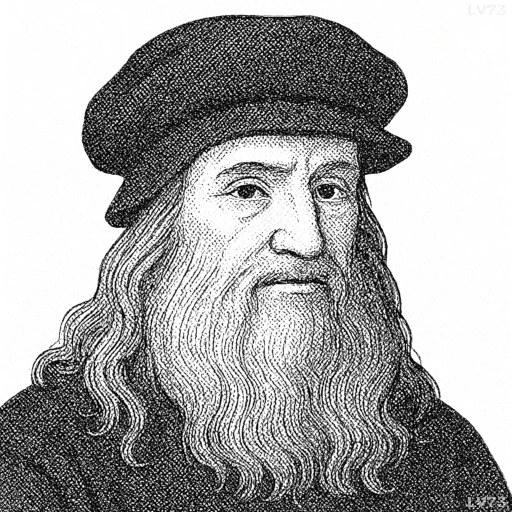“All our knowledge has its origins in our perceptions.”

- April 15, 1452 – May 2, 1519
- Italian
- A versatile man (painter, sculptor, architect, inventor, scientist, etc.)
table of contents
Quote
“All our knowledge has its origins in our perceptions.”
Explanation
In this quote, Leonardo da Vinci underscores the idea that knowledge begins with our sensory experiences. Our understanding of the world is rooted in what we can see, hear, touch, taste, and smell. Perception is the gateway through which we gather information about the world around us. Da Vinci suggests that all of our intellectual understanding, whether it pertains to art, science, or any other field, is fundamentally based on our direct experience of the world through our senses. Without perception, we would have no raw data to process and understand, making it the first step in the development of knowledge.
Historically, this quote aligns with Renaissance humanism, which emphasized the importance of empirical observation and experience. During the Renaissance, thinkers like Da Vinci sought to understand the world not through abstract theories alone but through careful observation and study of nature. Da Vinci himself made numerous observations in anatomy, mechanics, and physics, believing that the foundation of knowledge lay in understanding the world directly through the senses.
In modern terms, this idea ties into empiricism, a philosophical school of thought that emphasizes knowledge derived from sensory experience and observation. Today, scientific research is based on empirical data—observations and experiments—and this principle remains central to fields such as psychology, neuroscience, and philosophy of mind. Da Vinci’s insight reminds us that knowledge is not an abstract concept but a product of our interaction with the world and how we interpret and process what we perceive. It highlights the importance of perception in shaping our understanding and gaining true insights about the world around us.
Would you like to share your impressions or related stories about this quote in the comments section?



